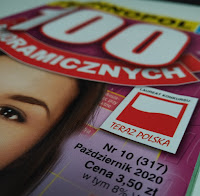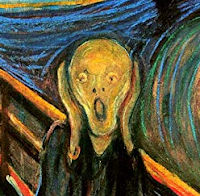Crossword Knowledge 10 - Knives

After a clue asking about a large kitchen knife... Clue: Duży nóż kuchenny ...it got me thinking that I only know the one Polish word for knife, nóż , and considering I'm keen in the kitchen and talk a lot about food and cooking, I thought I'd best find the names of a few knives. Nóż do warzyw - veg knife Nóż do obierania - translates as peeling knife, but I think it's what we would call a paring knife. Nóż do chleba - bread knife Nóż do fioletowania - filleting knife Nóż szefa kuchni - chef's knife Tasak - cleaver (not in photo - currently, I do not have a cleaver) Answer: Tasak













